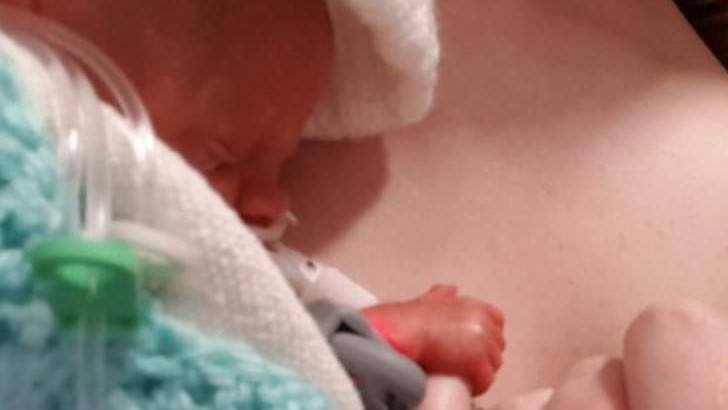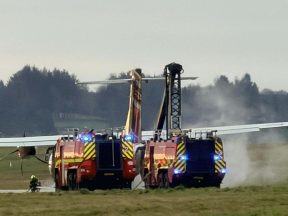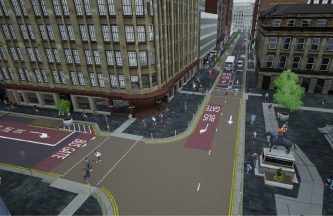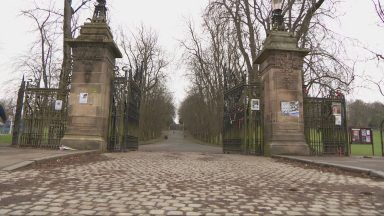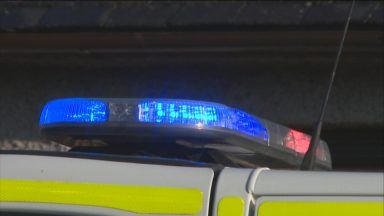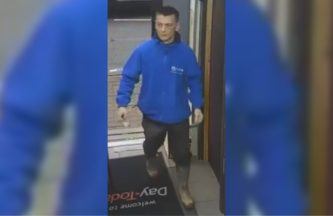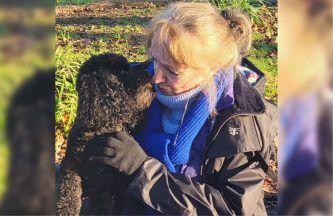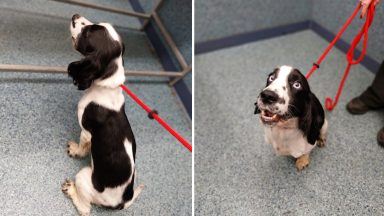A group of concerned mums believe the proposed centralisation of neonatal intensive care in Scotland could have a significant impact on babies across the country.
Minister for public health and women’s health Jenni Minto announced the new model of neonatal care after changes were recommended by an expert group, in July last year.
Under the proposal, babies born at less than 27 weeks, weighing under 800 grams, or in need of specialist complex care will be moved to neonatal intensive care units in Aberdeen, Glasgow, or Edinburgh.
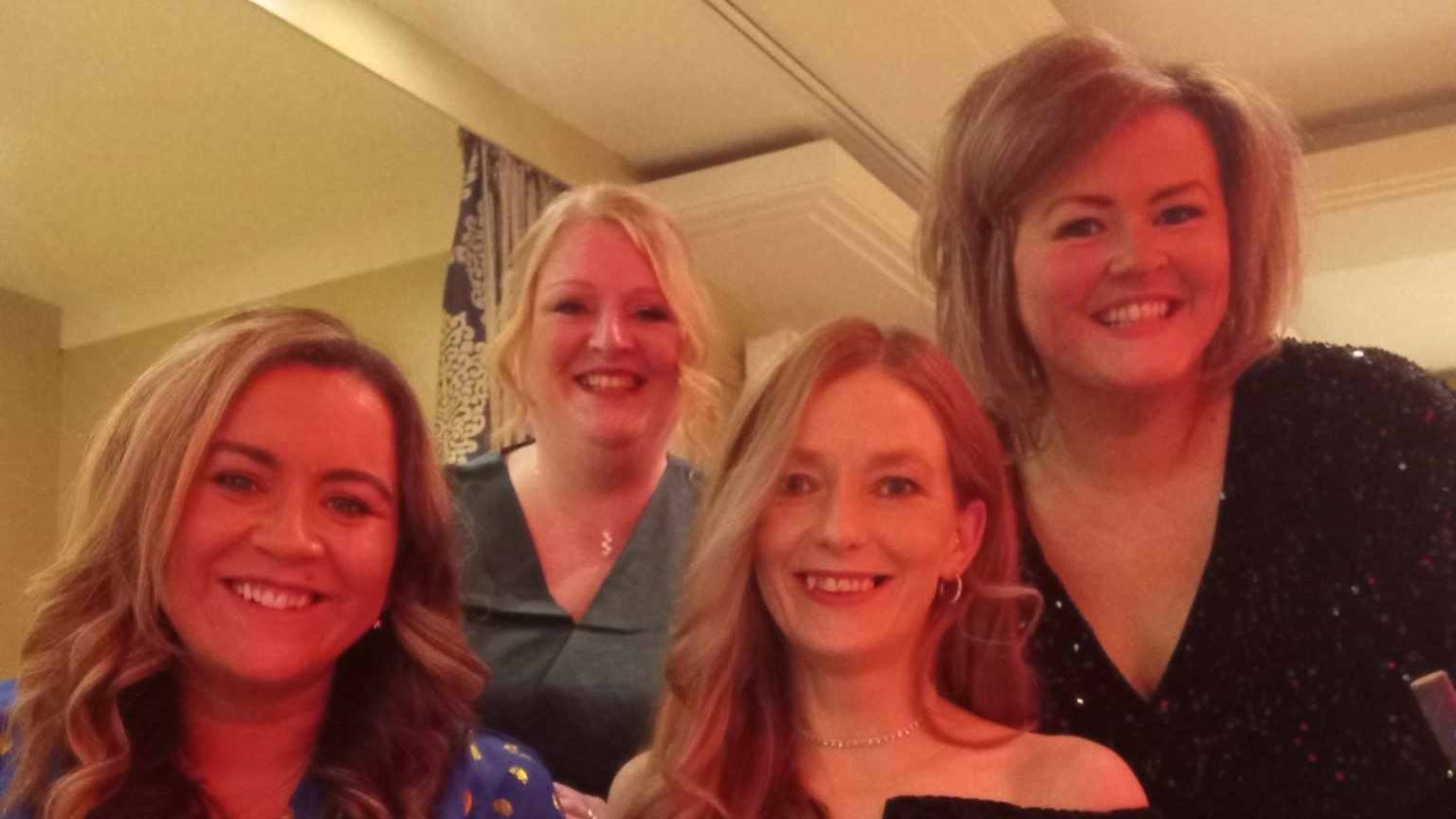 Supplied
SuppliedThe plans would affect the services provided in several hospitals including Ninewells in Dundee, Victoria Hospital in Kirkcaldy and University Hospital Wishaw.
A petition launched against the centralisation of neonatal care received more than 20,000 signatures.
Four mums, who run the Wishaw Neonatal Warriors group, shared their stories with STV News ahead of a Scottish Government debate on the issue on Wednesday.
‘I would never have met my baby if he’d been transferred to different hospital’
Angela Tierney first experienced the vital care provided by the neonatal staff in Wishaw when she gave birth to baby Olly in May 2019.
Due to medical complications both mother and child were left in a critical condition, with Olly immediately taken to the neonatal intensive care unit at University Hospital Wishaw.
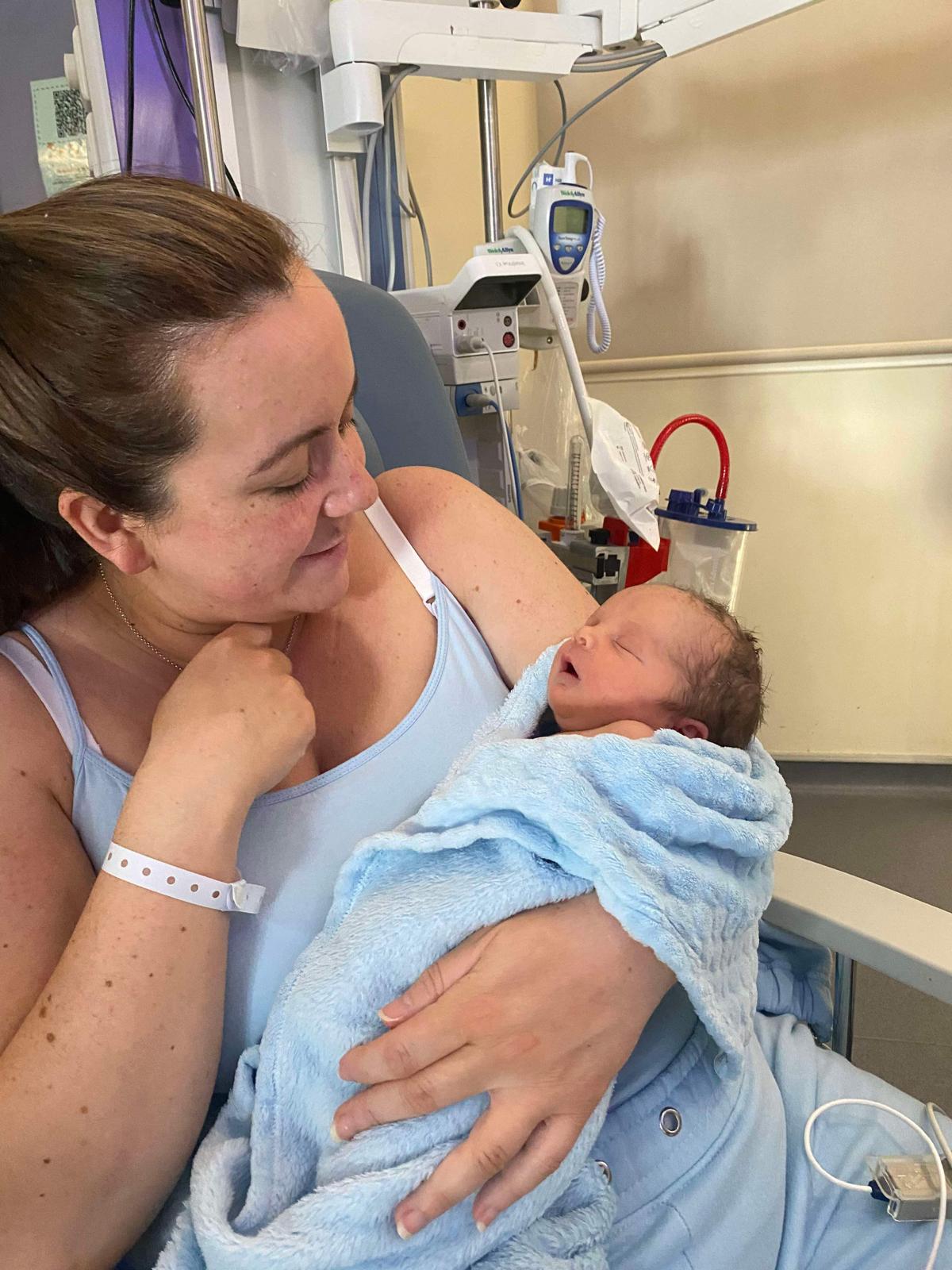 Angela Tierney
Angela TierneyThe 37-year-old, from Blantyre, managed to hold her son before he died at just five days old. Under new guidance, Olly would have been taken to Edinburgh, Glasgow or Aberdeen due to his size and complex needs.
Angela believes that if this was the case, she would never have seen her child before he died.
“Nobody wants to find themselves in a ward like that,” she told STV News.
“It’s very scary, daunting and emotional. I was critically ill after Olly was born, if he was transferred to one of the super units I would never have seen him because he died at five days old.
“No one thought Olly would pass away but premature births are unpredictable.”
On May 14, the Tierney family experienced the neonatal intensive care unit for the second time after Angela gave birth to son Luca.
“I didn’t feel alone, the staff all spoke to me and supported me,” she said.
“They put me at ease. I recognised a lot of people from Olly’s time there and they remembered us.
“These people really care about families.”
With centralisation of neonatal intensive care on the horizon, the mum is concerned families like hers won’t be able to make cherished memories with their critically-ill babies before they pass away.
Angela said: “The Scottish Government believe centralisation will increase the survival rate but I don’t think it will.
“I believe there is a chance if a mum being rushed to Aberdeen they could give birth at the side of the A9 without any of the essential equipment needed.
“You are also relying on the maternity units having beds but as we know the NHS is already stretched. The one to one care I had from staff allowed me to have the precious moments with my son.”
‘We were told to say our goodbyes multiple times’
Alfie Milligan was born weighing just 640g and spent four and a half months in Wishaw’s Neonatal Intensive Care Unit.
Alfie’s mum Monica Sheen lived a mere five minutes from the hospital where he struggled for his life. The family were told to make their way to the ward numerous times to say their goodbyes to Alfie.
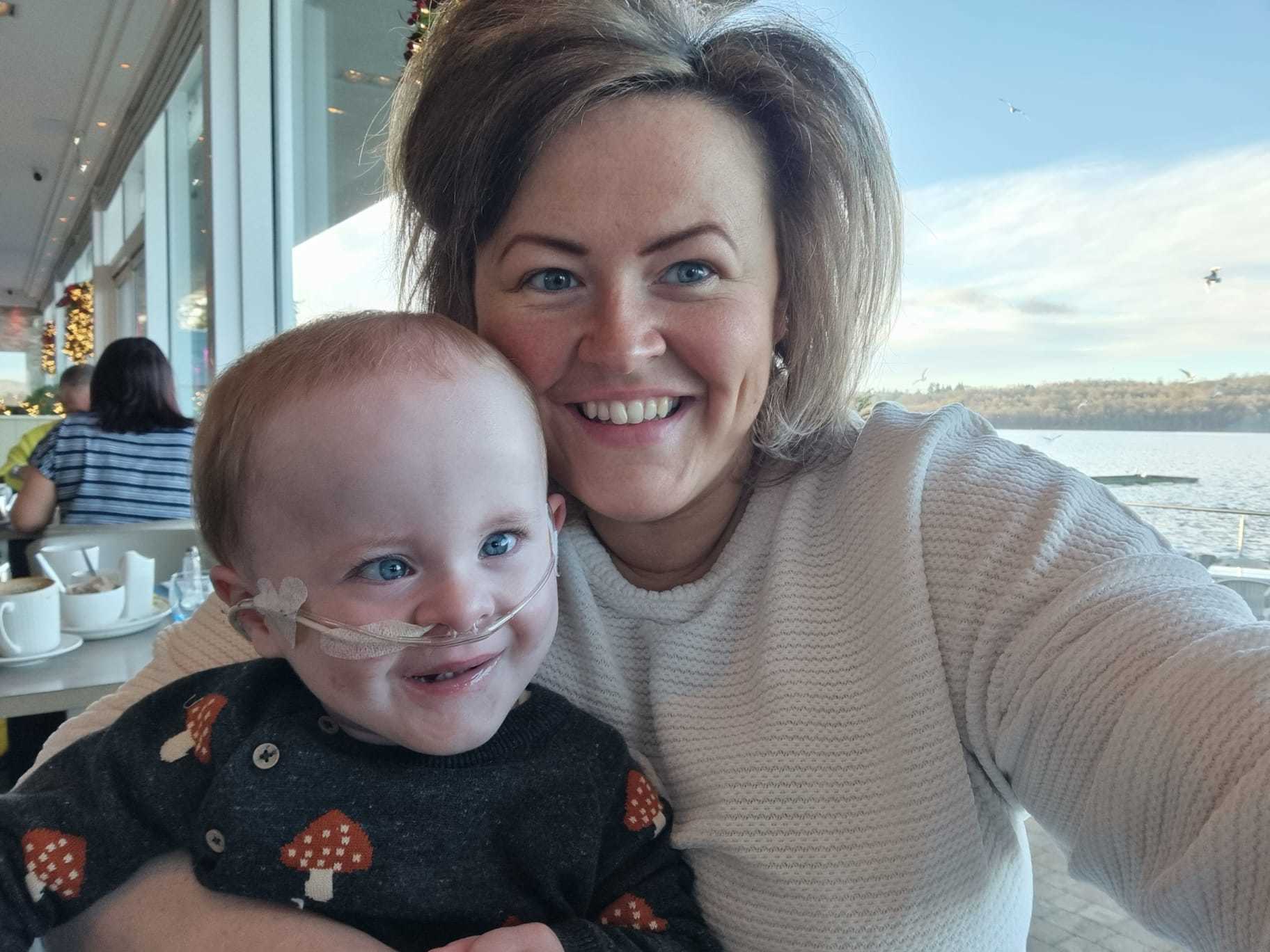 Monica Sheen
Monica SheenHowever, the now two-year-old pulled through thanks to the staff working tirelessly in the unit.
“It truly was the most terrifying experience of my life,” Monica said.
“We didn’t know if we’d be able to take him home but, on more occasions than I can count, the staff at Wishaw neonatal saved Alfie’s life.
“His lungs collapsed on various occasions and he suffered a number of infections, but that unit is the reason I have a family.”
Under the new proposals laid out by the government, Monica could have faced anywhere from a 50-minute to a three-hour journey to see her then-critically ill son.
“Those five minutes are the longest of your life but I can’t imagine what a three-hour journey to say goodbye would be like,” the 36-year-old told STV News.
“That’s what parents could face if Wishaw is downgraded. Centralisation could split up families during the toughest point in their lives.
“I had my mum here when I was going through stressful days. Had I been in Aberdeen there would’ve been no one.
“I can only imagine how isolating that would be. The Wishaw unit is a lifeline for families across the west coast.
“It could have drastic consequences on young babies.”
‘Having a baby in the NICU means parents need support’
Tammy Johnstone-Little believes she has experienced the loneliness many parents will feel if centralisation is introduced.
A few weeks after finding out she was pregnant, the 38-year-old became unwell resulting in multiple trips to hospital.
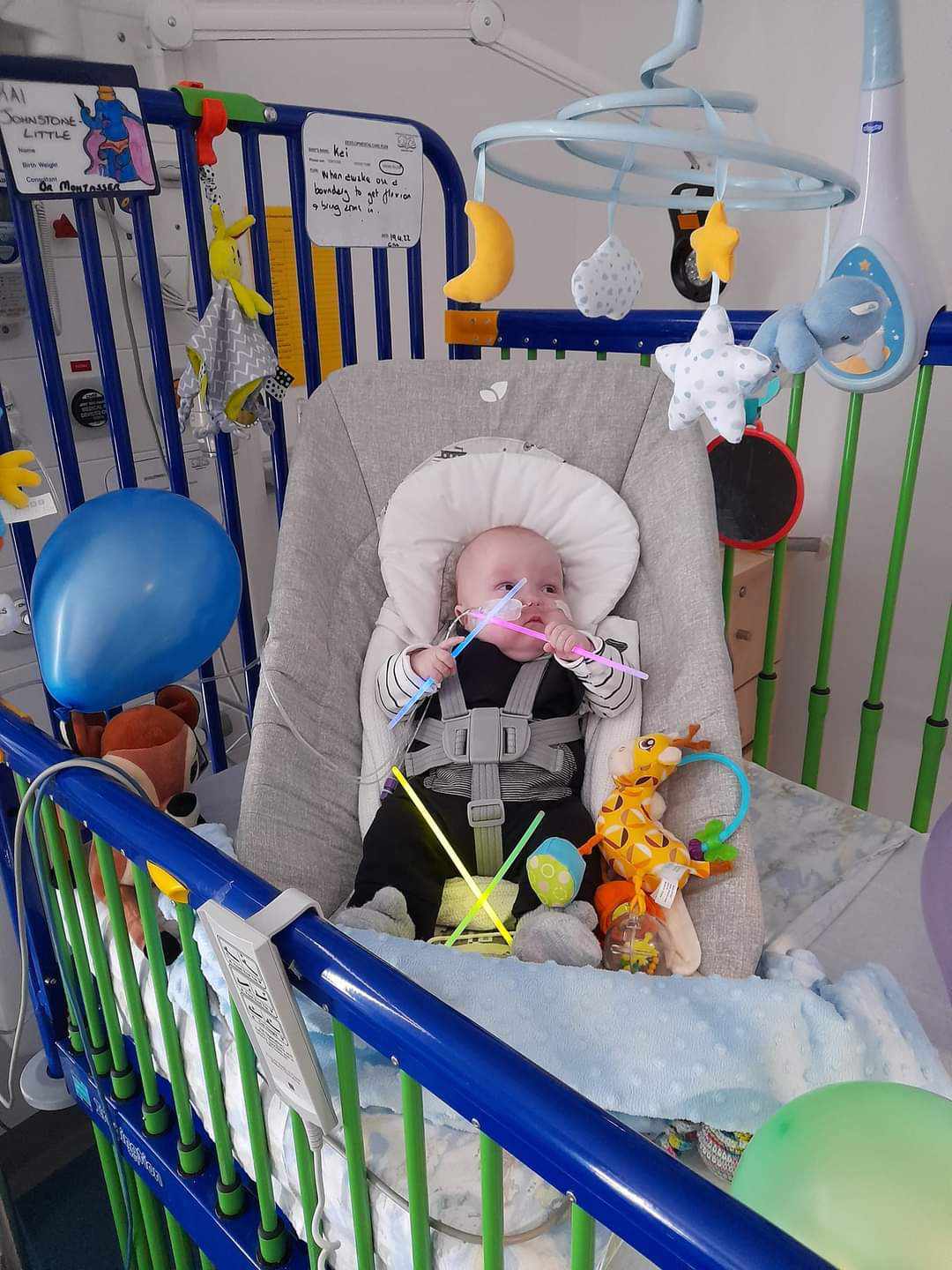 Tammy Johnstone-Little
Tammy Johnstone-LittleHer son, Kai, was born in Glasgow’s Queen Elizabeth University Hospital in November 2021. Due to his premature birth, Kai was taken to the neonatal intensive care unit where he spent the first three months of his life.
With her family in Lesmahagow unable to offer their support, Tammy felt alone during one of the most difficult times in her life.
“With him born during the pandemic no family members were allowed to visit,” she said.
“Although it was within travelling distance it was isolating. I was there for months at a time without help, so I know how families who are forced to travel to Aberdeen will feel.
“When your child is in the NICU you need support from your loved ones.”
Tammy will be in attendance at Holyrood as ministers discuss the huge change to the way neonatal intensive care operates throughout Scotland.
The worried mum added: “This debate is monumental.
“It feels like the be all and end all, which is scary.
“It’s vital for the safety of all the babies and mums of the future.”
‘We were told my baby would pass in my arms shortly after birth’
In 2019, Lynne McRitchie watched as her newborn Innes fought off infections and sepsis over four months with the help of Wishaw’s neonatal staff.
The family aimed to provide a sense of normality for their other son Callum as they travelled from their home in East Kilbride to see Innes in hospital.
“We were told if Innes was born alive he’d be given to us to hold as he passed away,” the 43-year-old told STV News.
“Thankfully the wee warrior held on. Over the best part of three months he fought off infections and sepsis.
“It is heartbreaking walking out the door without your child but he was in the right place. The nurse and doctors in the ward became our family and supported us.”
Lynne is adamant the centralisation of care to Scotland’s three biggest cities could be detrimental to premature babies and their mums.
Her biggest concern is that families could be completely cut off from their vital support network during their time of need.
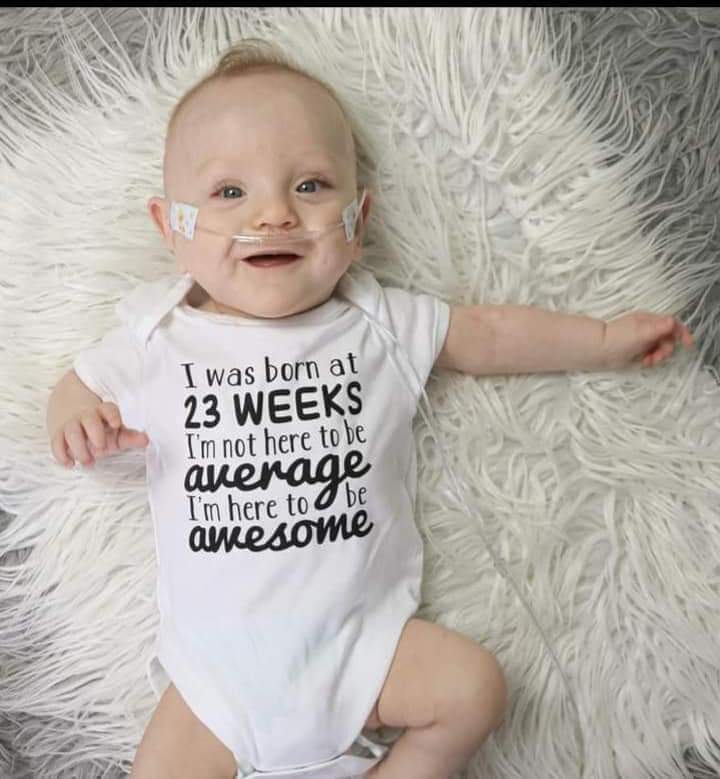 Lynne McRitchie
Lynne McRitchie“Wishaw is leading the way on neurodevelopment care so how can downgrading it be justified. We keep hearing that this has been done in the best interest of babies,” she said.
“It took ten days before Innes was strong enough for us to hold him, so I can’t understand how they are going to transport fragile babies across the country.
“The intention is to move women before they deliver their baby but with Innes I was told I’d be giving birth imminently.
“When you have a child in neonatal intensive care you don’t know what to expect. The family could be called in at any minute to say goodbye.
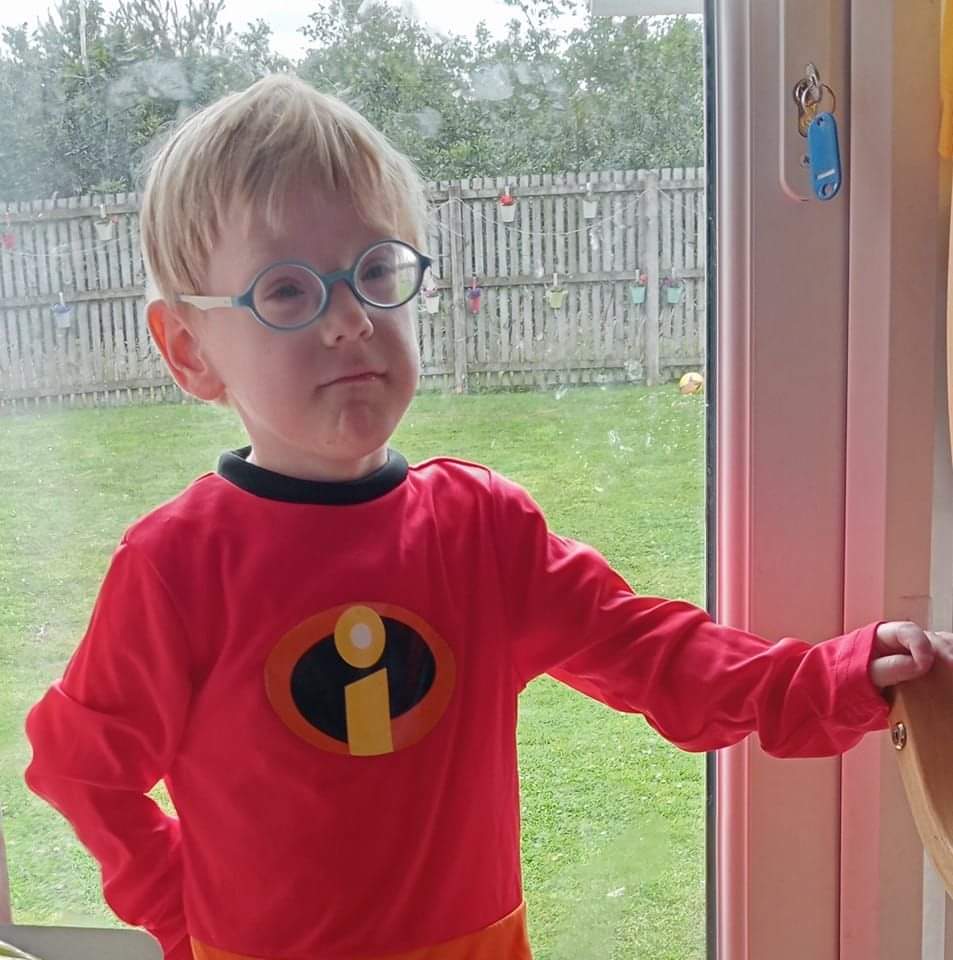 Lynne McRitchie
Lynne McRitchie“What happens if their child is 200 miles away? We believe that babies’ lives could be lost due to centralisation.
“Under the proposal, Wishaw is due to lose eight beds and that is catastrophic for babies and parents.
“Our hope for Wednesday is that the petitions committee will seek a full review of the process of how information is gathered and move to having four neonatal intensive care units, with the fourth being Wishaw.
“Lanarkshire is a huge area to cover and Wishaw takes in babies from the Borders and Dumfries and Galloway. It’s concerning that those children could be moved as far as Aberdeen.”
‘New model will improve chances for smallest and sickest babies’
MSP Jenni Minto told STV News the proposals will be implemented off the back of advice provided by expert clinicians.
They believe the framework will save the lives of some of the sickest babies in Scotland.
The women’s health minister also said units such as the University Hospital Wishaw will provide the majority of care to babies born in the area.
Minto said: “The decision to move to three national Neonatal Intensive Care Units has been made following strong evidence and advice from expert clinicians that the new model will improve chances of survival for the smallest and sickest babies.
“Local neonatal units like University Hospital Wishaw will continue to provide care to the vast majority of babies who need it, including a level of intensive care.
“We value our engagement with parents and families who have had a baby cared for in a neonatal unit and will continue to work with them to ensure that these changes are made in the right way.”
Follow STV News on WhatsApp
Scan the QR code on your mobile device for all the latest news from around the country


